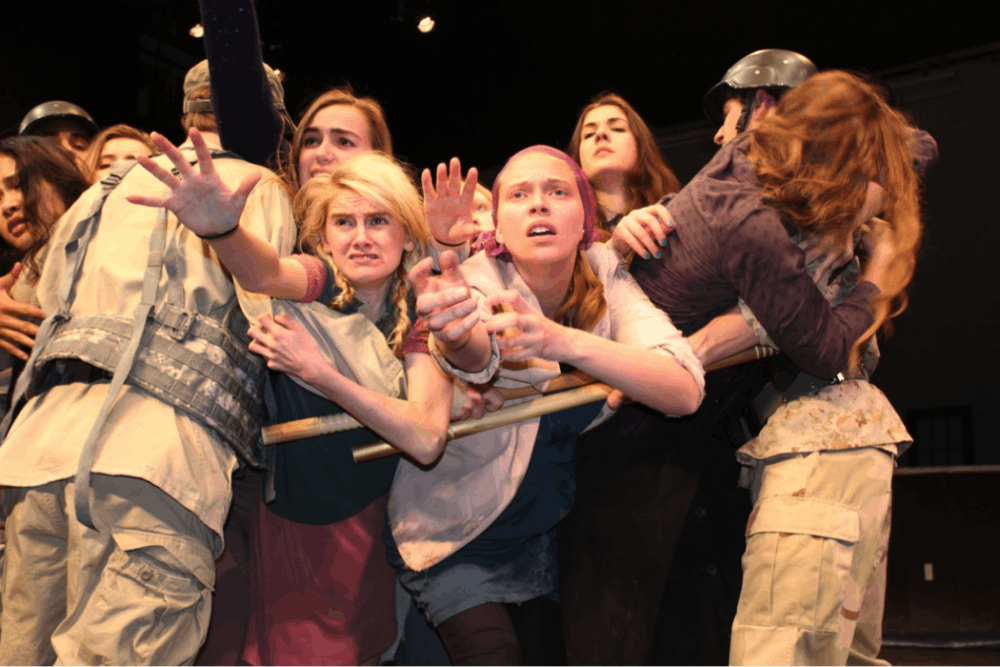“The Women of Troy,” a new adaptation of Euripides’s play from more than two thousand years ago, is a lyrical poem of grief and savage irony that is as relevant today as it was then.
“Contemporary playwright Don Taylor’s evocative translation is a relentless song of suffering, capturing the women of Troy waiting to be shipped abroad from their war-torn city,” the Middlebury Theatre Program webpage advertises. “Officials come and go. A grandmother, once queen, watches as the last surviving members of her family are taken from her one by one. The city burns around them.”
Vanessa Mildenberg, a visiting assistant professor of theatre from London, directs the production, which features a company of 21 students. The play will transport its audience to a place and time that encompasses both the ancient and the now, the here and there — it challenges and inspires us in both lyrical and realistic terms.
“On my many travels, what strikes a chord with me, wherever I am, is that there always seems to be an ‘over there’” Mildenberg said. “War and conflict is over there, refugees are over there. Women are subjected to organized rape over there, by those people. People are killed in churches over there, by them, those people … us and them.”
One of the chorus members, sociology/anthropology and theatre joint major Mary Baillie ’18, found it challenging to remain active and fully immersed in the show at the beginning of the semester. However, after digging into modern war’s influences on women, she finds meaning in her individuality and is able to connect the past to the present.
“We are a group, yet each of us carries a very particular backstory,” Baillie said. “Our meticulous research into our roles as individuals — a group of very different women who have undergone different atrocities — has helped exponentially in understanding the way I react to what is happening, and also my own place within the dynamics of the group and the play.”
Finding this ancient piece of work highly resonant today, Baillie hopes that the sadness rooted in the play will help arouse moments of empathy powerful enough for us to view things differently, especially in a world where death and loss have become so prevalent in media that we are often ignorant of them.
Wentao Zhai ’17, a classics major, is taking Professor of Classics Pavlos Sfyroeras’s class in which students read the original “The Women of Troy” in Greek. After reading the script, he has visualized what a faithful production would look like. Nonetheless, Zhai is looking forward to being challenged and seeing new things in old forms by watching this fresh production.
“In terms of expectations, I am curious about how the production will particularly connect the play with a modern audience to promote an emotionally engaging experience,” Zhai said. “Though the plot, the characters and the relations between them would have been very familiar for the ancient Athenian audience, they are not so transparent for a modern audience. I look forward to watching how the production will introduce these elements and render the language.”
“The Women of Troy” will be performed on Thursday, May 4, and Friday, May 5, at 7:30 p.m. and Saturday, May 6, at 2:00 and 7:30 p.m., in the Seeler Studio Theatre at the Center for the Arts. There will be a post-show talk back immediately following the production on Thursday night. Tickets are $6 for Middlebury College students.




